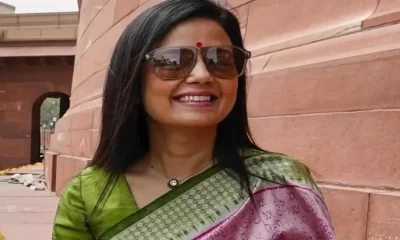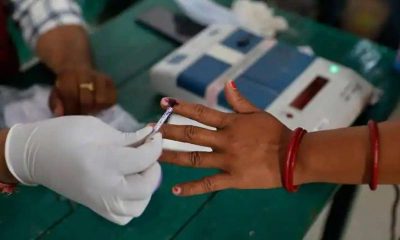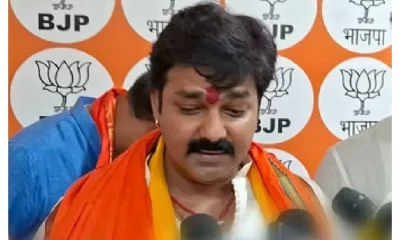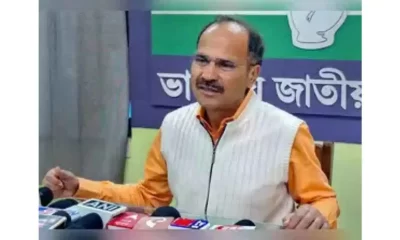India News
Parliament’s most productive monsoon session since 2000 ended Friday
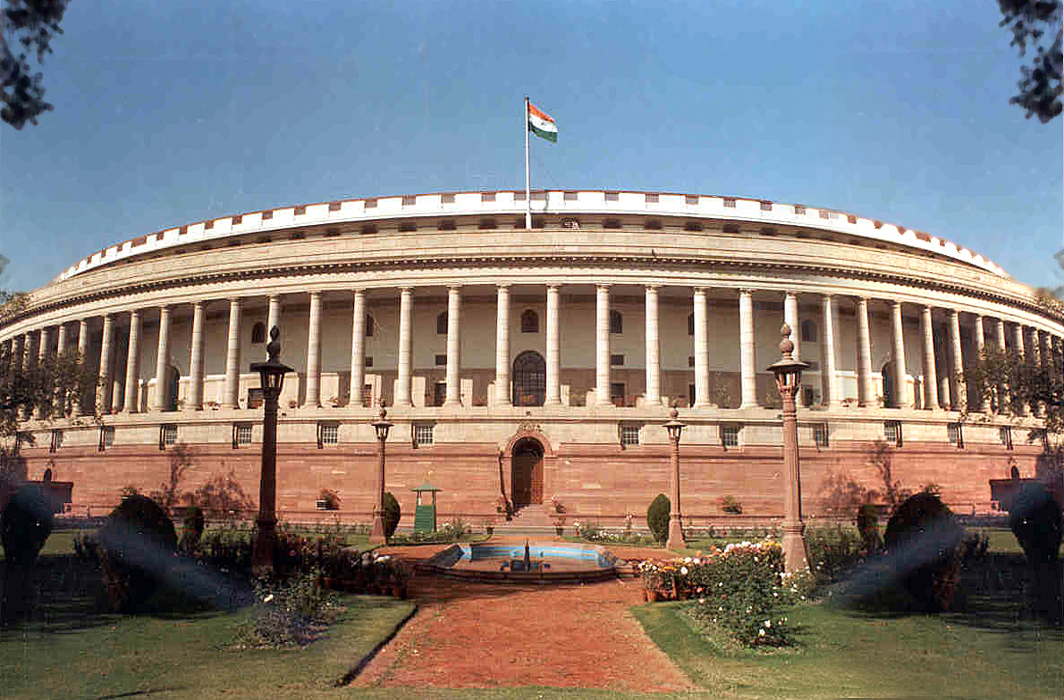
The monsoon session of the Parliament drew to a close on Friday, August 10, as the ‘most productive’ one since the year 2000, according to a report by PRS Legislative Research (PRS).
The session had 18 scheduled sittings (July 18, 2018 to August 10, 2018), out of which one day was cancelled for a festival and another was adjourned after the obituary was read for Mr. Karunanidhi.
For the first in the 16th Lok Sabha, a no-confidence motion against the government was moved and discussed. This was the 27th no-confidence motion. The motion was discussed for 12 hours by 51 members, at the end of which the motion was defeated.
The election of the Deputy Chairman of the Rajya Sabha was also held with Mr. Harivansh Narayan Singh becoming the Deputy Chair.
During the session, Lok Sabha worked for 110% of its scheduled time, while Rajya Sabha worked for 66%. So far in the 16th Lok Sabha, the average productivity of Lok Sabha is 86% and that of Rajya Sabha is 67%. This was the most productive Monsoon Session of Lok Sabha since 2000. However, Rajya Sabha lost time due to disruptions (including on account of protests against Assam’s draft National Register of Citizens).
Nearly half the session time spent on legislative business: the highest in 16th Lok Sabha. Both Lok Sabha (50%) and Rajya Sabha (48%) spent the highest portion of their time on legislative business. This is the highest amount of time spent on legislative business by both Houses in the 16th Lok Sabha, second highest since 2004.
In this session, 20 Bills were introduced, of which 11 were passed by at least one House of Parliament. Out of the total Bills introduced, six were to replace Ordinances. These included Bills related to anti-trafficking, amendment to insolvency law, and change in punishment for rape. So far in the 16th Lok Sabha, 39 ordinances have been issued, i.e., an average of nearly 10 ordinances per year.
Fewer Bills are being referred to Parliamentary Committees (26%), as compared to the 15th Lok Sabha (71%) and the 14th Lok Sabha (60%). In this Session, the Ancient Monuments and Archaeological Sites and Remains (Amendment) Bill, 2017 and the Banning of Unregulated Deposit Schemes Bill, 2018 were referred to parliamentary committees.
In the 16th Lok Sabha, highest number of government Bills were introduced by the Ministry of Law and Justice and the Ministry of Health and Family Welfare. In the 15th Lok Sabha, highest number of Bills were introduced in Ministry of Finance, Ministry of Home Affairs and Ministry of Law and Justice.
Of the 68 Bills pending in the 16th Lok Sabha, the highest number of Bills were introduced by the Ministry of Law and Justice and the Ministry of Health and Family Welfare. These include the Muslim Women (Protection of Rights on Marriage) Bill, 2017, the Whistle Blowers Protection (Amendment) Bill, 2015, and the National Medical Commission Bill, 2017.
The session also saw one of the most productive Question Hours of the 16th Lok Sabha. Lok Sabha functioned for 84% of its scheduled Question Hour time while the Rajya Sabha functioned for 68% of its scheduled time.
The monsoon session also had highest number of Private Member Bills (999) introduced in Lok Sabha since 2000. Though nearly 1000 Bills were introduced in the 16th Lok Sabha, less than 10 were taken up for discussion, for a total of 50 hours. No Private Member Bill has been enacted into law since 1970.
Rajya Sabha discussed issues related to the misuse of social media to spread violence, the final draft of the National Register of Citizens in Assam, and the non-implementation of the Andhra Pradesh Re-organization Act, 2014.
Lok Sabha discussed the flood and drought conditions in the country. In addition, the Supplementary Demands for Grants 2018-19 were discussed in Lok Sabha.
The Personal Laws (Amendment) Bill, 2018 was introduced in Lok Sabha on Friday. It amends several existing Acts such as the Divorce Act, 1869, the Hindu Marriage Act,1955, and the Special Marriage Act, 1954. The Bill amends these Acts to remove leprosy as grounds for divorce.
The Arbitration and Conciliation (Amendment) Bill was passed in Lok Sabha. The Bill amends the Arbitration and Conciliation Act, 1996. It includes provisions to establish an independent body called Arbitration Council of India (ACI) to promote arbitration, mediation and provide a redressal mechanism.
2024 Lok Sabha Elections
PM Modi says Congress leaders consider themselves above Lord Ram
PM Modi slammed Congress during a rally in Chhattisgarh, ahead of the Lok Sabha elections 2024
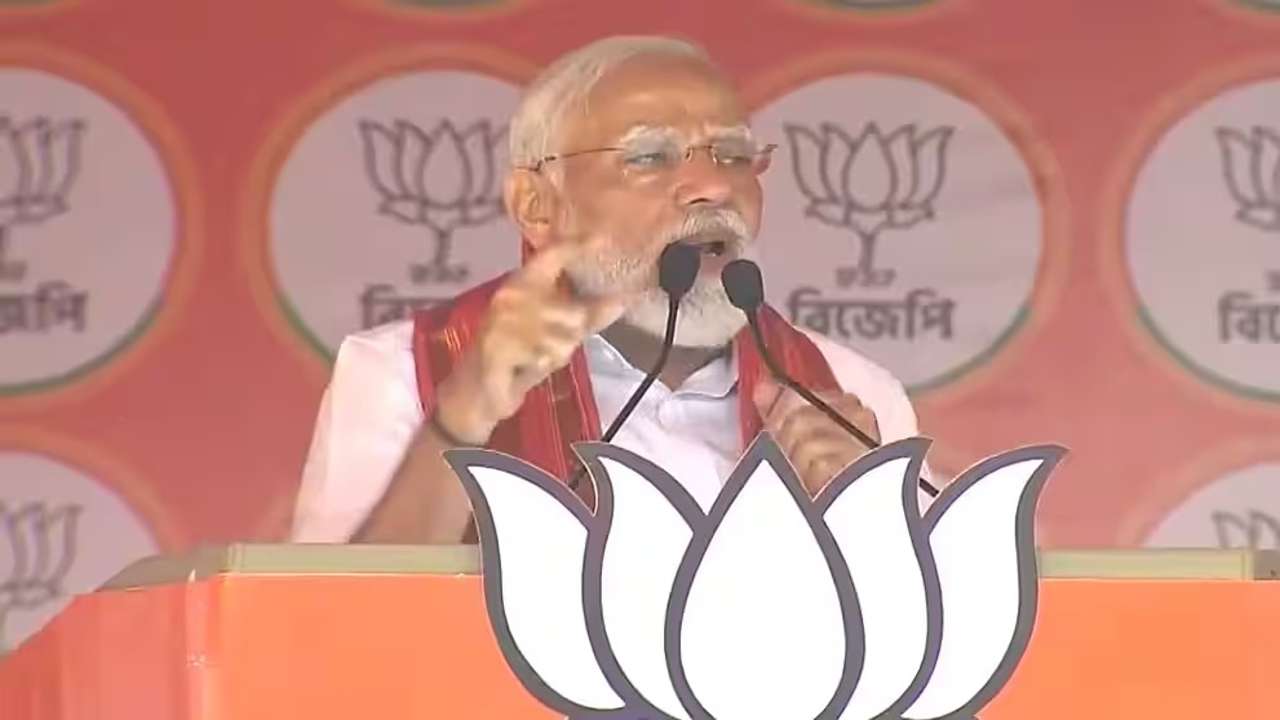
Prime Minister Narendra Modi slammed the Congress party for declining to attend the pran pratishtha ritual at the Ayodhya Ram temple on January 22 this year.
The prime minister said Congress leaders consider themselves above Lord Ram and denied invitation for Pran Pratishtha at Ram Temple, while speaking at a rally in Janjgir-Champa, Chhattisgarh. The PM question the people present at the rally that is it not a disrespect of Mata Shabri? Congress leaders inclination toward appeasement politics runs in their family.
For political appeasement, they won’t think twice about stealing the rights of Adivasis, the poor, and Dalits. Poor, young, and women are BJP’s top priorities, Modi said.
PM Modi criticized the Congress again during the rally for claiming that the BJP would alter the constitution.
The leaders of Congress recite the same old phrases whenever an election is about to happen, the PM said. He also said they claim that if the BJP wins power, it will renounce the constitution and abolish reservations. For how long will you continue selling lies?” he asked.
The prime minister continued saying that nobody can change the Constitution, even if Dr. Babasaheb Ambedkar were to come and insist on it, it wouldn’t happen.
Those in the Congress threaten to break Modi’s head. Nobody can harm Modi as long as the mothers and sisters of this county stands by him. These mothers and sisters are Raksha Kavach, Modi remarked.
The prime minister further attacked the Congress after Viriato Fernandes, the party’s candidate for South Goa, asserted that Goa was forced to adopt the Indian Constitution.
Referring to his conversation with Congress leader Rahul Gandhi ahead of the 2019 Lok Sabha elections, Fernandes said he had told him, when Goa was liberated in the year 1961, the Indian Constitution was forced upon us.
The prime minister said, Congress candidate from Goa says Constitution was forced upon Goans; is this not an insult of Ambedkar and Constitution.
2024 Lok Sabha Elections
Amit Shah says neither Congress nor Trinamool chief Mamata Banerjee can interfere with CAA
Amit Shah revealed the BJP’s target for West Bengal and said they have set a target of winning 35 Lok Sabha seats from West Bengal.
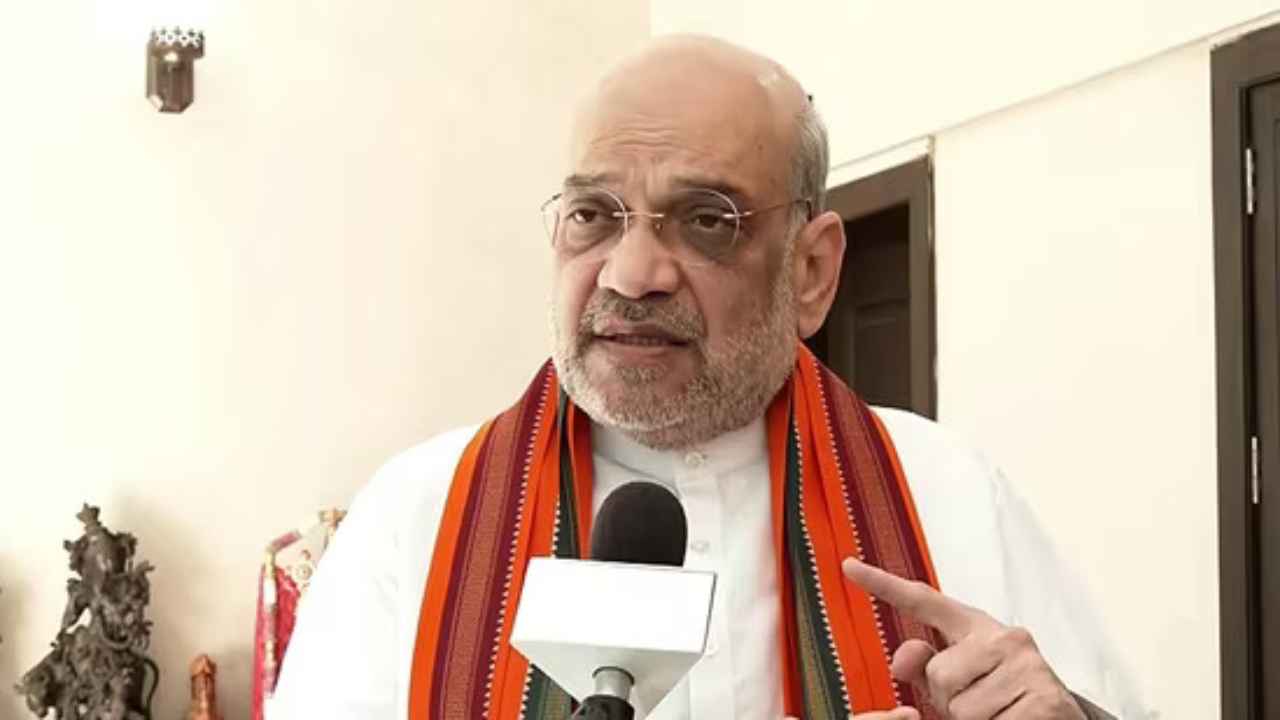
Union home minister Amit Shah on Tuesday said neither Congress nor Trinamool Congress chief Mamata Banerjee can interfere with the Citizenship Amendment Act (CAA). He was speaking at the Karandighi rally in West Bengal where he also made the prediction as to how many seats BJP will win in the Lok Sabha elections in West Bengal.
The union home minister asked the masses to cut the money culture. Amit Shah revealed the BJP’s target for West Bengal and said they have set a target of winning 35 Lok Sabha seats from West Bengal. In 2019 Lok Sabha elections the BJP had won 18 out of 42 seats in West Bengal. He asked Mamata Banerjee, what problem will she have if the Buddhist and Hindu refugees from Bangladesh get citizenship in India?
Shah further added if the people of West Bengal want to stop infiltration in the state, then they will have to make Narendra Modi the Prime Minister of India again. He said if the people of West Bengal want to free Bengal of violence, stop infiltration in the state, give citizenship to refugees, to stop disrespecting mothers and sisters of the state as it happened in Sandeshkhali, then only way is to make Narendra Modi the Prime Minister.
Amit Shah said that PM Modi had sent Rs 7 lakh crore to West Bengal but the TMC indulged in corruption. He said one can see the houses of Trinamool Congress leaders; 10 years ago they used to live in a hut, moved on cycle and now all of them have 4-storey houses and move around in big cars. He added this is the money of people of West Bengal.
The Citizenship Amendment Act (CAA), will make it easier for non-Muslim refugees from Afghanistan, Pakistan and Bangladesh to get Indian citizenship, was enacted in 2019. But the rules were notified in March this year by the Centre.
2024 Lok Sabha Elections
Prime Minister Narendra Modi says listening to Hanuman Chalisa under Congress rule is a crime
PM Modi was addressing an election rally in Rajasthan’s Tonk-Sawai Madhopur, on a day as India celebrates Hanuman Jayanti.
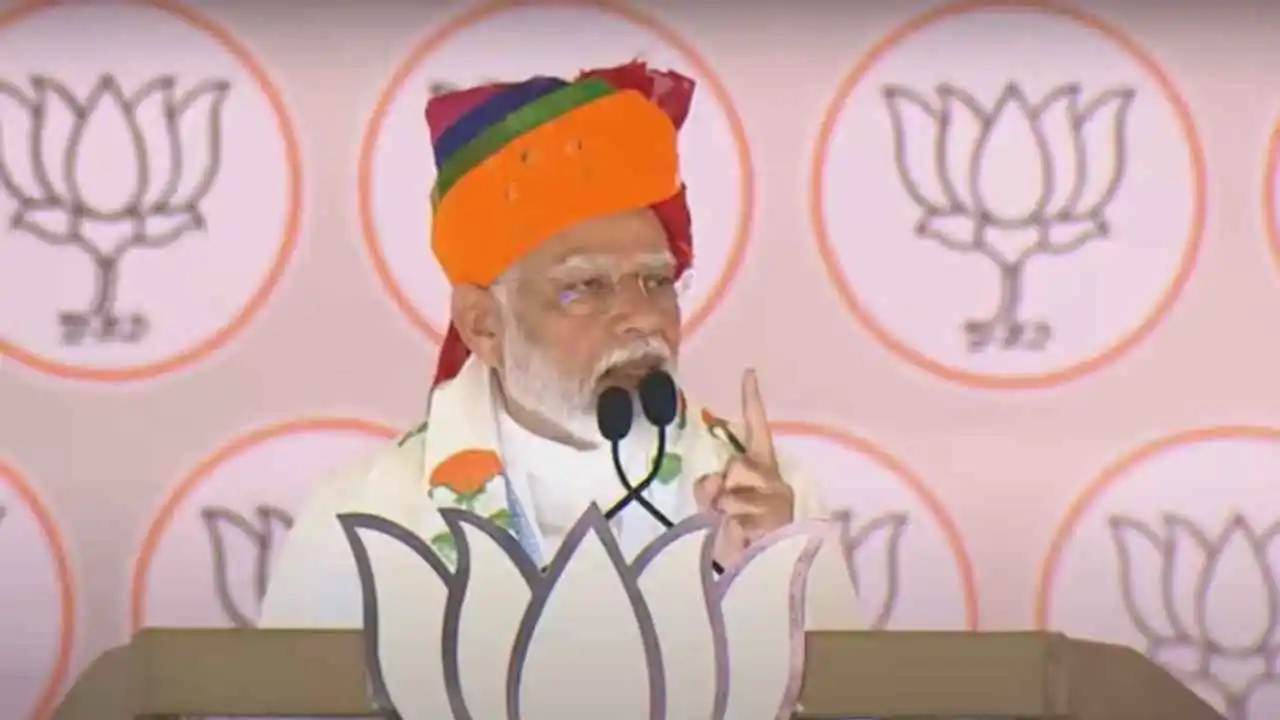
Prime Minister Narendra Modi on Tuesday hit out at the Congress and said even listening to Hanuman Chalisa has become a crime under the party’s rule. The Prime Minister also said it was difficult to follow one’s faith under the party and accused it of hatching a deep conspiracy to snatch people’s wealth and distribute it among selected few people in the society. PM Modi was addressing an election rally in Rajasthan’s Tonk-Sawai Madhopur, on a day as India celebrates Hanuman Jayanti.
PM Modi said in a state like Rajasthan where people chant Ram-Ram, Congress banned Ram Navami. He reffered to the redistribution of wealth remarks he had made during a rally in Rajasthan’s Banswara on Sunday and said it has angered the Congress and INDI Alliance so much that they have started throwing abuses at Modi everywhere.
The Prime Minister said that Congress has written in their manifesto that they will survey the wealth. He said the Congress leadership had said in a speech that an X-ray of wealth will be done. He added when Modi exposed the secret then the hidden agenda came out and this has left the people trembling. PM Modi further added that the Congress party has played with the Constitution of the India.
He said when the Constitution was drafted, reservations based on religion were opposed, so that Scheduled Casts (SC), Scheduled Tribes (ST) and Other Backward Classes (OBC) could get protection. He said former Prime Minister Dr Manmohan Singh had said that Muslims have the first right to the country’s resources. The prime minister further added Congress’s ideology has always been of appeasement and vote bank politics. He said stones would still be pelted in Jammu and Kashmir, and enemies would still be cutting off the heads of India’s soldiers had Congress been in power.
-

 Cricket news16 hours ago
Cricket news16 hours agoIPL 2024: Yashasvi Jaiswal hits brilliant century to help Rajasthan Royals beat Mumbai Indians by 9 wickets
-
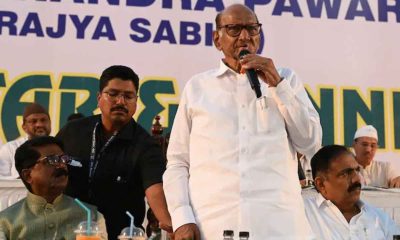
 2024 Lok Sabha Elections15 hours ago
2024 Lok Sabha Elections15 hours agoNCP (SP) leader Sharad Pawar says Prime Minister Narendra Modi is trying to create fear like Russian President Vladimir Putin
-
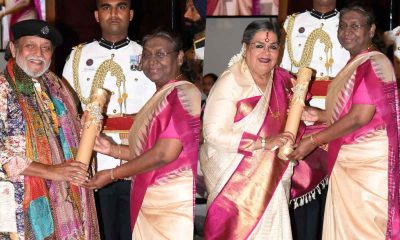
 Entertainment14 hours ago
Entertainment14 hours agoMithun Chakraborty, Usha Uthup honoured with Padma Bhushan
-

 Entertainment12 hours ago
Entertainment12 hours agoFan jumps on stage and hugs Atif Aslam during concert, video goes viral
-
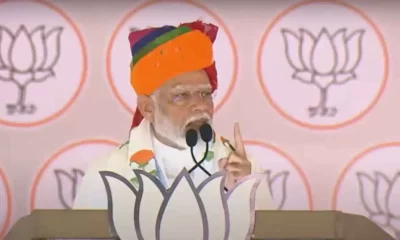
 2024 Lok Sabha Elections14 hours ago
2024 Lok Sabha Elections14 hours agoPrime Minister Narendra Modi says listening to Hanuman Chalisa under Congress rule is a crime
-

 Entertainment10 hours ago
Entertainment10 hours agoManisha Koirala reveals reason for rejecting Dil To Pagal Hai, says regrets that decision
-
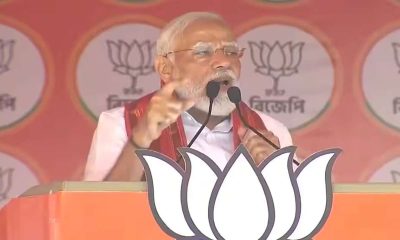
 2024 Lok Sabha Elections9 hours ago
2024 Lok Sabha Elections9 hours agoPM Modi says Congress leaders consider themselves above Lord Ram
-
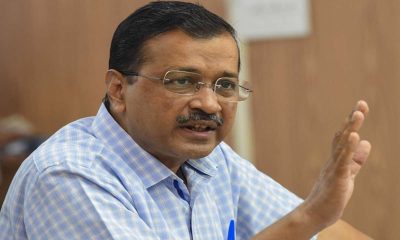
 India News16 hours ago
India News16 hours agoArvind Kejriwal given insulin in Tihar jail after sugar levels touch 320

